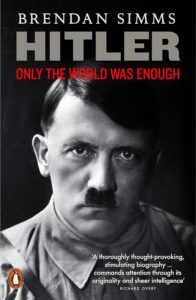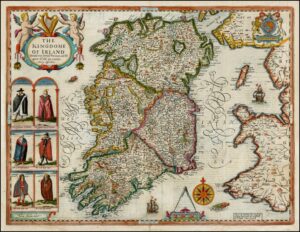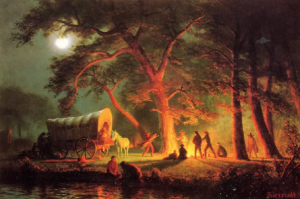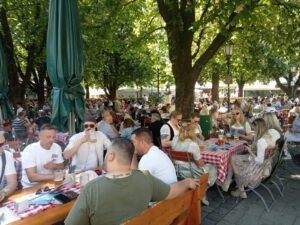Regarding post-1945 National Socialism, I’ve previously recommended the site of Martin Kerr, the heir to the old guard: George Lincoln Rockwell and Matt Koehl. Now I would also like to recommend the new guard: the Volkish podcast Manifest Destiny.
Tag: National Socialism
 From 18 November 2023 until 12 January this year I had been publishing some extracts from Brendan Simms’ book on Hitler. I will no longer quote it at length. But I have just edited a PDF that can serve not only as an introduction to Simms’s intellectual biography—in the sense of trying to understand Hitler’s ideas— but for something more important.
From 18 November 2023 until 12 January this year I had been publishing some extracts from Brendan Simms’ book on Hitler. I will no longer quote it at length. But I have just edited a PDF that can serve not only as an introduction to Simms’s intellectual biography—in the sense of trying to understand Hitler’s ideas— but for something more important.
I am referring to the fact that, even eighty years after the fateful 1945, the American racial right still fails to understand fundamental aspects of National Socialism. I hope that our ‘Hitler’ PDF will serve not only to make them, at last, begin to understand Uncle Adolf, but also the German—and European—degenerates I saw earlier this month on my recent visit to continental Europe. In his book, Simms observed:
Hitler rose to new heights of invective against the German middle class, whom he dismissed as ‘philistines’, ‘bourgeois boobies’, who were so befuddled by the ‘fug of associational meetings’ that they were unable to transcend the ‘usual jingoism of our bourgeois world of today’. He contrasted the robustness of the SA, who knew that ‘terror can only be broken by terror’, with ‘bourgeois wimpishness’. Hitler also trenchantly restated his objections to parliamentarism and electoral politics, and western democracy in general, concluding that the ‘majority principle’ amounted to ‘the demolition of the Führer idea as such’.
Does one begin to understand why I have so much contempt for the racial right of our day, infinitely closer to American conservatism than to National Socialism? I recommend reading these excerpts from Simms’ book to anyone who wants to understand history’s darkest hour.
What a chasm between the Munich of 1939 and the absolute horror of Munich that I saw twelve days ago, in this year of 2025!
The PDF version of my recent trip to Europe is now available. Naturally, I edited it and reduced the number of pictures considerably because the PDF text is intended to be printed at home.
Zero
Lebenskraft ! (9)
Munich
2nd May
What I said about Salzburg can also be applied to Munich. This city grew up around a Benedictine monastery. Even the very young Hitler entertained the idea of joining the Benedictines! In fact, Munich means the house or home of the monks.
What I said about nuking the cathedrals and every monument of the Abrahamic religions is no joke. Since what is causing the darkest hour of the West is that the Semitic collective unconscious, and not the Aryan collective unconscious, has taken over our souls, to save us it will be necessary to implement something similar to what Nietzsche called ‘law against Christianity’.
Nietzsche wrote in the 19th century. In our century this law would have to be expanded to consider the whole liberal range, even Wokism, as atheistic hyper-Christianity. And atheists who preach equality will deserve the same treatment as the new Catholic pontiff deserves: to throw them in ropes into the Danube. But back to Munich.
The capital of Bavaria became a kingdom whose monarchy ended in the First World War. Although Hitler loved Munich, there is no monument here honouring the memory of the Man who tried to transvalue Christian values to pre-Christian values.
By bus I passed a canal where they hired a Venetian gondolier for tourists to cross. It is an expensive area much desired by those who can afford it. Munich is the most expensive city in Germany, and it is a university city. A small flat costs €1900 plus expenses such as heating. Although the salary in Germany is €4,000, the government takes a lot from its citizens for social security.
The 1972 Olympics were designed to contrast with the 1936 Olympics: with pastel colours and undulating shapes that contrasted sharply with the red-black-white and geometric shapes of the Third Reich. It was cool that Arab ‘terrorists’ spoiled the party! The police uniforms themselves changed to show the world a feminised face, like a new anti-militarist Germany.
All the Germans I saw looked like cattle of the elites. Their birth rate is very low because their new religion, in the ‘Empire of yin’ imposed on them, is ethnosuicide. The Munich people, unlike Himmler, drink a lot of beer. This is a point I would like to go into a little more in-depth so that the visitor can understand the POV of this site.
You cannot ask people to suddenly abandon their beliefs. That’s why Hitler opted for a gradual erosion of Christianity by educating the youth in the new National Socialist religion. Nor could the masses of Germans be asked to give up their alcoholic habits. But in the upper echelons of power things had to be different: a priesthood of holy words. On a popular level, I am reminded of a scene in Game of Thrones in which the High Sparrow tells Cersei that if he didn’t accept the cup of wine the queen offered him, it wasn’t because he was puritanical, but simply because he didn’t like the taste of wine. Something similar could be said of Himmler, unlike the mass of Germans who lived under the Reich (I too cannot tolerate the taste of beer).
And something similar can be said of Hitler. White nationalists don’t understand NS because it is something that comes straight from what Jung called the Self. If Hitler became a vegetarian it was for the same reasons that Himmler didn’t drink beer: the call of the core of our Being leads psychogenically emergent men not to be involved in the torment of animals. That will never be understood by the American racial right since its members haven’t been ‘touched by the Self’ so to speak.
Unlike Hitler, a true priest of holy words, contemporary Münchner love ham hock with potatoes, ribs and sausages, including white sausage at what they call second breakfast. And unlike Himmler, as I said, they drink a lot of beer. Martin Kerr saw this very clearly when he included this cartoon in his article ‘The National Socialist Lifestyle’:
Here is a picture I took of the Münchner:
In that market there are stalls with sausages, including horse meat. Compare all this Neanderthalism with Hitler’s plan as recorded by Goebbels: if he won the war, the Führer would close down the slaughterhouses. On this point only Savitri Devi understood National Socialism!
Almost every building in Munich was destroyed by bombing. On Maximilian Street, where people like the pot-bellied man in the cartoon above have luxury boutiques, I saw this aberration:
Nearby is the church most beloved by the Münchner. Instead of sacrificing themselves for National Socialism like the soldier in the cartoon above, the lifestyle of these degenerates is abject consumerism. No wonder that in such a city the sin against the Holy Ghost is tolerated, like this thing I saw:
It hurts that, not far from this place, Richard Wagner used to be played.
It is worth saying that, sometime later, I crossed the street of Hitler’s failed putsch who, when he finally took power, didn’t move the NS offices from Munich to Berlin because the Führer loved this city so much. Indeed, Munich had been the birthplace of National Socialism…
Lebensborn
‘If we could establish the Nordic race and, from this seedbed, produce a race of 200 million, the world would be ours.’ —Himmler
In heated debates, many commenters on racialist forums continue to discuss Hitler and National Socialism these days, including Greg Johnson (e.g., here).
One of the most recurring themes of Hitler’s critics has been the way the Germans treated the Slavs in WW2. I am enormously struck by the fact that none of them have been able to point out the obvious. It was perfectly natural and laudable that Himmler and his people, who had some Norwegian villages as an almost perfect paradigm of the Aryan, wanted to Aryanise the occupied territories of those who had suffered miscegenation due to the continuous Asian invasions.
Concerned about this issue, while walking through a beautiful little English village I once asked historian Arthur Kemp, author of a book on the history of the white race, a naive question. I asked him what percentage of Russians would be mixed. I say naive as it is obvious that they are already all more mixed than the purest Nordics—the paradigm with which Himmler and his ilk wanted to populate Europe, beautifully portrayed by the American Maxfield Parrish whose paintings now hang on the walls of my studio.
As we said in my anthology ‘On Exterminationism’, a few months after its founding, Himmler’s Lebensborn project opened Heim Hochland, the first home for pregnant women. For this purpose, the National Socialists took over the construction of a Catholic orphanage in Munich. Initially, the institution could accommodate up to thirty mothers and fifty-five children, and the candidates were carefully selected. Only women who met the characteristics of the dominant race were admitted. Candidates had their skulls measured, and only those with the coveted elongated skull, typical of the Nordic type, could be admitted. They also had to meet other requirements, such as blond hair, blue or green eyes and good health. Those who passed the test received the best care.
This fact, that due to the brutal Asian invasions the Slavs’ bloodline was already more compromised than the specimens chosen by Himmler and the SS to repopulate the conquered territories, is completely overlooked by all these critics of Hitler. They overlook it because of their Christian ethics and the mandate of universal brotherhood, so they see all Caucasoids (except Jews) as brothers. It is surreal to admit, but only someone who is not an Aryan, such as myself, has been able to point this fact out over the years in my disputes with white nationalists.
The thing to do is to applaud Hitler’s plans, including his Master Plan East, and only criticise him militarily (easy to say now: he should’ve waited until he had the atomic bomb before venturing into Operation Barbarossa).
What I say in ‘The Wall’ stands, which is why it remains and will remain the featured post of The West’s Darkest Hour. An axiological wall separates National Socialists from white nationalists and very few Americans have crossed it. William Pierce was one of them but it is a wall that very few racialists are, now, willing to cross.
There is something I have perceived and have already said but it is worth reiterating.
In my experience on this site, thanks to the emails sent to me by the more radical commenters I have noticed that only those who were martyred as children or teenagers by their parents have been able to truly break with the values of today’s West. It is difficult to visualize it if you don’t read the autobiography of one of them. But for the sake of understanding I will use an analogy.
Only people like Solzhenitsyn, who suffered years in the Gulag, broke with the ideology of the Soviet state to the extent that, already a refugee in the US, he wanted that state to be destroyed. We can already imagine nationalist Russians in Brezhnev’s time! Despite Stalin’s crimes, it would be unthinkable for them to wish for such a thing because, unlike Solzhenitsyn, they didn’t suffer the horrors of the Gulag.
Only intense suffering makes one break with the paradigm in turn, although I recognise that suffering resulting from parental abuse annihilates psychically almost everyone. That is why I must translate my books into English, something I will restart now that I am beginning to settle down after a very calamitous move.
What
does not work
HISTORICALLY, ethnic nationalism — both the conscious type, which first flowered in Europe in the 19th century, and the unconscious, natural type which has been around among all races since time immemorial — has been tried again and again, hundreds of times, nay, thousands of times throughout history. It is no strong proof against the dangers of miscegenation, or mercantile empire which usually leads to multiculturalism and multiracialism and ultimately miscegenation. It has failed again and again to prevent Jewish infiltration and domination, which are death sentences for any people which tolerate them. In short, ethnic nationalism alone is not enough. It has been tried and it has failed. For a cumulative total of a thousand years and more, it has utterly failed to prevent the existential plight in which the White race finds itself today. Ethnic nationalism on its own is the quintessence of what does not work.
But National Socialism did not fail. That is why it is vilified by our enemies. True, it was defeated in a war — I say a battle in a war that is not yet over [emphasis by Editor]. But, barring war, its trajectory was perfect. In just twelve years: A nation, freed from Jewish usury and destructive influence. A nation, determined to preserve its Aryan racial heritage and carry it, progressively, into the infinite future. A nation, broken free from ossified and dangerous hereditary aristocracy, and broken free from even more dangerous mass “democracy.” A nation, freed from hostile alien media. A nation, freed from the twin evils of international Communism and international banking. A nation, ultimately forged in war as the vanguard and protector of the entire European race. A nation whose titanic sacrifice and immolation at the hands of Jewish power may one day — if we do right — become an element of a religion [emphasis by Editor] which will inspire our people to protect and defend forever our sacred race against all dangers.
It was tried for just twelve years. You could say National Socialism hasn’t really been tried yet, not fully. But in those twelve years, it was the most positive revolutionary force ever seen on this planet. It shows every prospect of success if it can capture the imaginations of enough of our people and become established again. And our enemies certainly know that — that is why they do everything they can, constantly, to prevent its resurgence. And today, buttressed by William Pierce’s discovery of and elaboration of Cosmotheism, it would be even more powerful, being even more imbued with the spiritual essence and Life of our people.
 Plain vanilla “ethnic nationalism” equals a thousand years of failure (which fails in the long term even when it “succeeds”; look at Ireland today); that’s the ethnic nationalism of Keith Woods, who wrote a recent article suggesting that nationalists should abandon National Socialism (see the critique of his approach here by Daniel Zakal) — and that failure is embodied in every other White man who refuses the hand of Providence offered by Adolf Hitler and his new creed. An entirely new race-based creed and spiritual outlook to replace the failed and outworn creeds of Christianity and democracy; with great prospects of success — that’s what National Socialism promises.
Plain vanilla “ethnic nationalism” equals a thousand years of failure (which fails in the long term even when it “succeeds”; look at Ireland today); that’s the ethnic nationalism of Keith Woods, who wrote a recent article suggesting that nationalists should abandon National Socialism (see the critique of his approach here by Daniel Zakal) — and that failure is embodied in every other White man who refuses the hand of Providence offered by Adolf Hitler and his new creed. An entirely new race-based creed and spiritual outlook to replace the failed and outworn creeds of Christianity and democracy; with great prospects of success — that’s what National Socialism promises.
The triumph of race-based, deeply spiritual, National Socialism means the eternal existence of our race, the total reorientation of society toward racial progress, and the achievement of our cosmic destiny. The triumph of plain-vanilla “ethnic nationalism” means “business as usual” leadership from figures only faintly more race-oriented than Geert Wilders, Nigel Farage, and Vladimir Zelensky — and probably significant compromises with such figures. That’s a huge difference.
I wrote of this in my program “A New Religion for Us,” highlighting the spiritual and philosophical depth of National Socialism, which sets it so much higher than the emptiness of mere “ethnic nationalism,” which nearly always merely holds on to whatever creed happens to be popular at the moment — and which today would surely cling to Abrahamic Jew-centered nonsense, as well as holding on to so-called “democracy.” The triumph of such a “nationalism” would get us almost nowhere. I wrote:
With profounder ideals and a stronger will than any other leadership structure of any other society for thousands of years at least, Germany ultimately sought to spiritually shepherd the unique expression of the Life Force and the growing consciousness that is our race through the dangers of the 20th century and beyond. Those dangers include 1) being trapped in an earth-bound Semitic creed designed to ensnare us in universalism, weakness, and worship of our enemies; 2) rejecting that Semitic creed in favor of an atheistic materialism and individualism that destroys our ability to grow and act as a natural biological and spiritual community; and 3) rejecting that Semitic creed in favor of the equally alien, spiritually empty, and equally debilitating equalitarian creed of Marxism.
National Socialism, especially when coupled with a strengthened spiritual aspect that has developed since 1945, saves us from those three dangers.
Savitri Devi wrote of National Socialism as a new life-affirming faith while she was imprisoned for her beliefs after the war:
And Hitler’s words about Christianity, reported by Rauschning in the fourth chapter of his book, would be admired — not criticised — in an Aryan world endowed with a consistently National Socialist consciousness, for they are in keeping with our spirit — and ring too true not to be authentic. [Even though parts of his book were surely forged in an effort to harm Germany and Hitler. — K.A.S.] “Leave the hair-splitting to others,” said the Führer to Hermann Rauschning before the latter turned renegade:
“Whether it is the Old Testament or the New, or simply the sayings of Jesus according to Houston Stewart Chamberlain, it is all the same Jewish swindle. It will not make us free. A German Church, a German Christianity, is a distortion. One is either a German or a Christian. You cannot be both. You can throw the epileptic Paul out of Christianity — others have done so before us. You can make Christ into a noble human being, and deny his divinity and his rôle as a saviour. People have been doing it for centuries. I believe there are such Christians today in England and America — Unitarians, they call themselves, or something like that. It is no use. You cannot get rid of the mentality behind it. We do not want people to keep one eye on life in the hereafter. We need free men, who feel and know that God is in themselves.”
Indeed, however clever he might have been, Rauschning was not the man to concoct this discourse out of pure imagination. As many other statements attributed to the Führer in his book, this one bears too strongly the stamp of sincerity, of faith — of truth — to be just an invention. Moreover, it fits in perfectly with many of the Führer’s known utterances, with his writings, with the spirit of his whole doctrine… [He] knew that we can only win, in the long run, if, wherever essentials are concerned, we maintain that intolerance of any movement sincerely “convinced that it alone is right.” And he knew that, sooner or later, our conflict with the existing order is bound to break out on the religious and philosophical plane as well as on the others. This is unavoidable. And it has only been postponed by the material defeat of Germany — perhaps (who knows?) in accordance with the mysterious will of the Gods, so as to enable the time to ripen and the Aryan people at large, and especially the Germans, to realise, at last, how little Christianity can fulfil their deeper aspirations [emphasis by Editor], and how foolish they would be to allow it to stand between them and the undying Aryan faith implied in National Socialism.
That Aryan faith — that worship of health, of strength, of sunshine, and of manly virtues; that cult of race and soil — is the Nordic expression of the universal Religion of Life. It is — I hope — the future religion of Europe and of a part at least of Asia (and, naturally, of all other lands where the Aryan dominates). One day, those millions will remember the Man who, first — in the 1920s — gave Germany the divine impetus destined to bring about that unparalleled resurrection; the Man whom now the ungrateful world hates and slanders: our Hitler.
Imprisoned here for the love of him, my greatest joy lies in the glorious hope that those reborn Aryans — those perfect men and women of the future Golden Age — will, one day, render him divine honours.
Woods is so wrong when he says “we nationalists” need to reject Hitler and National Socialism in order to more quickly “gain popularity.” I say there is no solution without waking up from the brainwashing. And if you think National Socialism was evil, you have not awakened from the brainwashing. And having a “movement” of supposed “nationalist revolutionaries” who accept 80 or 90 per cent of the Jews’ false world view will quickly be fatal to any state so founded. It’s real revolution, Hitler’s and Pierce’s revolution, or nothing. That is the real choice we face as White people in this hostile world.
And I’ll add two more important points to address the claim that Hitler denigrated and fought against other Aryan nations, who still resent it: 1) Adolf Hitler evolved during the great conflict of World War 2, which he began as a German nationalist and ended as the de facto leader of all Aryans against malevolent Jewish power, with volunteers (including a gigantic Slavic army) from every part of Europe, not just the Germanic or Nordic parts, on his side; and
2) Just because you descend from a nation that, due to historical circumstance, had a conflict with National Socialist Germany, that shouldn’t make you blind to the mythopoeic power of the greatest struggle of all time, between the heroic and spiritually noble National Socialists — for whom the worth of a man was his fidelity to his cosmic and biological destiny — and the crass materialist Jew-dominated capitalists and Communists, for whom the worth of a man was purely economic and who instinctively hate the race-based order we need.
My ancestors, for example, were from Norway. Norway was occupied by German troops. I am sure that some Norwegians were imprisoned by the German National Socialists. Some who made war on Germans were probably killed, as were some Germans in that fight. So what? Should Norwegians hate Germans and everything that has come from Germany on that account, from Hitler to Beethoven? No, that’s absurd. The Norwegians and the Germans need to forget those quarrels and wars of the past. The triumph of National Socialism would mean the Norwegians — and our kindred peoples from across all of Europe — would have a chance to exist eternally, and evolve higher and higher, as Fate and Destiny beckon us. No petty nationalism comes close to that — not by 10,000 miles.
Correction
In my previous post I attributed an insightful comment to an ‘OD [Occidental Dissent] commenter’.
I just realised it was a quote from the article ‘Nationalism without National Socialism is a Hollow Shell’ by Daniel Zakal, republished by National Vanguard here.
Timidity
 [National Socialist critic] Keith Woods advocates weakness, compromise, and intellectual dishonesty.
[National Socialist critic] Keith Woods advocates weakness, compromise, and intellectual dishonesty.
Keith Woods’ arguments ultimately boil down to a defense of half-measures and ideological timidity, dressed up as pragmatic strategy. His primary concern—that National Socialism carries negative stigma—is nothing more than a fearful retreat into weakness and respectability politics. Rather than standing firmly behind a rigorous, comprehensive, and proven life-affirming ideology, Woods prefers a sanitized nationalism designed to placate enemies who despise our existence regardless.
Nationalism without National Socialism is precisely the half-measure that has repeatedly failed European peoples. It offers neither structural solutions nor ideological coherence. Woods’ belief that the essence of National Socialism—its fundamental commitment to racial health, cultural vitality, economic independence, and disciplined self-overcoming—can be stripped away, leaving behind a vague ethnonationalist shell, is intellectually bankrupt. Such hollow nationalism can never provide the depth of purpose, moral clarity, or strategic vision essential for genuine rebirth and sustained revival.
Woods deliberately misconstrains the complexity of historical events, lazily parroting mainstream tropes without rigorous engagement with primary sources. He misrepresents the nature of Lebensraum, dismisses Slavic collaboration, and leans heavily on mistranslated excerpts from Hitler’s Table Talk. The reality is clear: the table talks—recorded firsthand in German by Picker and Heim—are authentic records, distorted only through English translations. To entirely dismiss them, as Woods does, is intellectually negligent and betrays a lack of scholarly integrity.
Woods’ rejection of National Socialism reveals more than historical ignorance—it exposes his philosophical cowardice. His ideological stance resembles National Bolshevism, a confused hybrid that tries and fails to reconcile nationalism with leftist economic populism, inevitably resulting in ideological paralysis. Woods advocates a path of least resistance, endorsing a nationalism devoid of moral clarity or revolutionary intent. He proposes nothing concrete beyond vague appeals to national tradition, conveniently sidestepping the urgent structural crises—demographic collapse, cultural degeneration, economic subjugation—that demand radical solutions.
In short, Woods represents precisely what must be eradicated from nationalism: timidity, compromise, and a preoccupation with optics. He prioritizes popular acceptance over ideological integrity, fundamentally misunderstanding the reality that true nationalism requires sacrifice, struggle, and unwavering adherence to principles that sustain and elevate life.
The Life Affirming Principle dictates clear solutions: nationalism must be bold, disciplined, and uncompromising. It cannot thrive through half-hearted populism or sanitized historical revisionism. National Socialism is more than Adolf Hitler or the Third Reich; it is a timeless truth, discovered rather than invented [emphasis by Editor]: a guiding philosophy for cultural, biological, and economic health. To reject it is to reject the only fully coherent system capable of achieving lasting strength and survival for our people.
Ultimately, Woods embodies a defeatist mindset. He would rather pursue polite nationalism, begging permission to exist, instead of forging an uncompromising path toward genuine national renewal. His approach offers neither hope nor solutions, only endless retreat. To embrace Woods’ path is to embrace perpetual defeat.
Woods
On an American racialist forum, I heard that Keith Woods recently wrote an article attacking National Socialism.
 If my psychological profile of Woods is accurate, it’s because he’s a Christian—and National Socialism is incompatible with a religion started by Jews.
If my psychological profile of Woods is accurate, it’s because he’s a Christian—and National Socialism is incompatible with a religion started by Jews.
I don’t have time to locate Woods’ article. Due to my move, I’ll be canceling my internet service the day after tomorrow. I hope to have another one by next week…
Aryan
Greetings to All!
by Martin Kerr
Let us start off this update with some good news: This has been a strong week for the NEW ORDER on social media, which is now one of the important battlefronts on which our struggle is being waged.
Specifically, we have had two very succesful posts within the space of four days on Gab. Together, these two posts combined have had 50,588 views (!), along with 820 likes, and 336 reposts (including quotes). These numbers will likely go up a little bit over the coming week. Those reading this update who have engaged in “real world” activism will realize that the amount of time, effort and expense it would take to distribute 50K leaflets, stickers or message cards would be immense. A single social media post (or two of them together) is not going to change the world, but spreading our message to tens of thousands of our White brothers and sisters is certainly a step in the right direction!
You may view the two posts here:
New Mini-Leaflet Campaign Gaining Some Traction
Starting in October, the Central Office mailed out packets of our new mini-leaflets to key activists for public distribution. So far, we have received word of distributions in eight states, namely Arkansas, Florida (multiple locations), Kentucky, Maryland, Nebraska, New York, Virginia (multiple locations), and Wisconsin. I suspect that that activists in other states have conducted additional distributions, but have not reported them to the Central Office. In one location – Brooklyn, NY – our good work was mentioned in the media. See:
These mini-leaflets are designed primarily to drive traffic to our website. We are not trying to “convert” normies into Hitlerists with a single leaflet, but rather to attract people who are already sympathetic (or merely curious) to our website, where serious education can take place. Mini-leaflets have been used to enhance the content of books in libraries, bookstores, used bookstores and newstands. Some have been place on bulletin boards or left at the coffee stations in convenience stores. Other comrades, using spray adhesive, glue and/or packing tape, have used the mini-leaflets as stickers.
Anyone wanting a packet of these cheery little fliers to distribute in their area should contact the Central Office, either by email or postal mail. To see what some of our designs are, check out this post by Racial Consciousness on Gab, here:
March 9th – Day of Action
March 9, 2025/JdF 135, will be the 107th anniversary of the birth of George Lincoln Rockwell, founder of post-War American National Socialism. This would be an excellent occasion for comrades nationwide to spread the Good Word of Adolf Hitler far and wide, operating either in small groups (preferred) or as lone wolf activists. Whether it is by the distribution of printed material or in some other manner, seize this opportunity to join with other National Socialists in bringing our message to our racial brothers and sisters.
If you choose to participate, be sure to report your activities – whether large or small – to the NEW ORDER Central office.
In Memoriam
We are sorry to report the passing of our longtime comrade, Douglas Winkleman. We are informed that he died from complications due to cancer on Dec. 12, 2023. He was 66. Comrade Winkleman is survived by his wife, five children and seven grandchildren. In the 1970s and 1980s, he was an officer in the Los Angeles Unit of the National Socialist White People’s Party. He also served for a year at party National Headquarters in Arlington, Va., as Corresponding Secretary and aide to Commander Matt Koehl. A full obituary of Doug will be forthcoming.
Webste News
We are still in recovery mode from the deplatfoming of our website in August. We are retaining counsel to get our previous URL restored to us. In the meantime, our new platform (https://theneworder.net/) is up and running. This past week we were able to get our Leaflet Library page back up, with the new URL on all leaflets. See:
You may use this resource to download leaflets for reproduction and distribution.
The two most-recent posts on the website are:
Matt Koehl’s classic 1967 essay, “Adolf Hitler: German Nationalist or Aryan Racialist?” This is the first time that we have had this important treatise on a NEW ORDER website or blog. Read at: LINK
A new short article by Martin Kerr, entitled, “An Historical Footnote: The Meeting between George Lincoln Rockwell and Otto Strasser.” See: LINK
Please excuse the tardiness of this update. There is a lot going on with the NEW ORDER right now, and we are operating with a very small staff that stretches us to the limit. We ask for your patience.
Stay in touch!
Heil Hitler!
Martin Kerr
Chief of Staff
NEW ORDER





